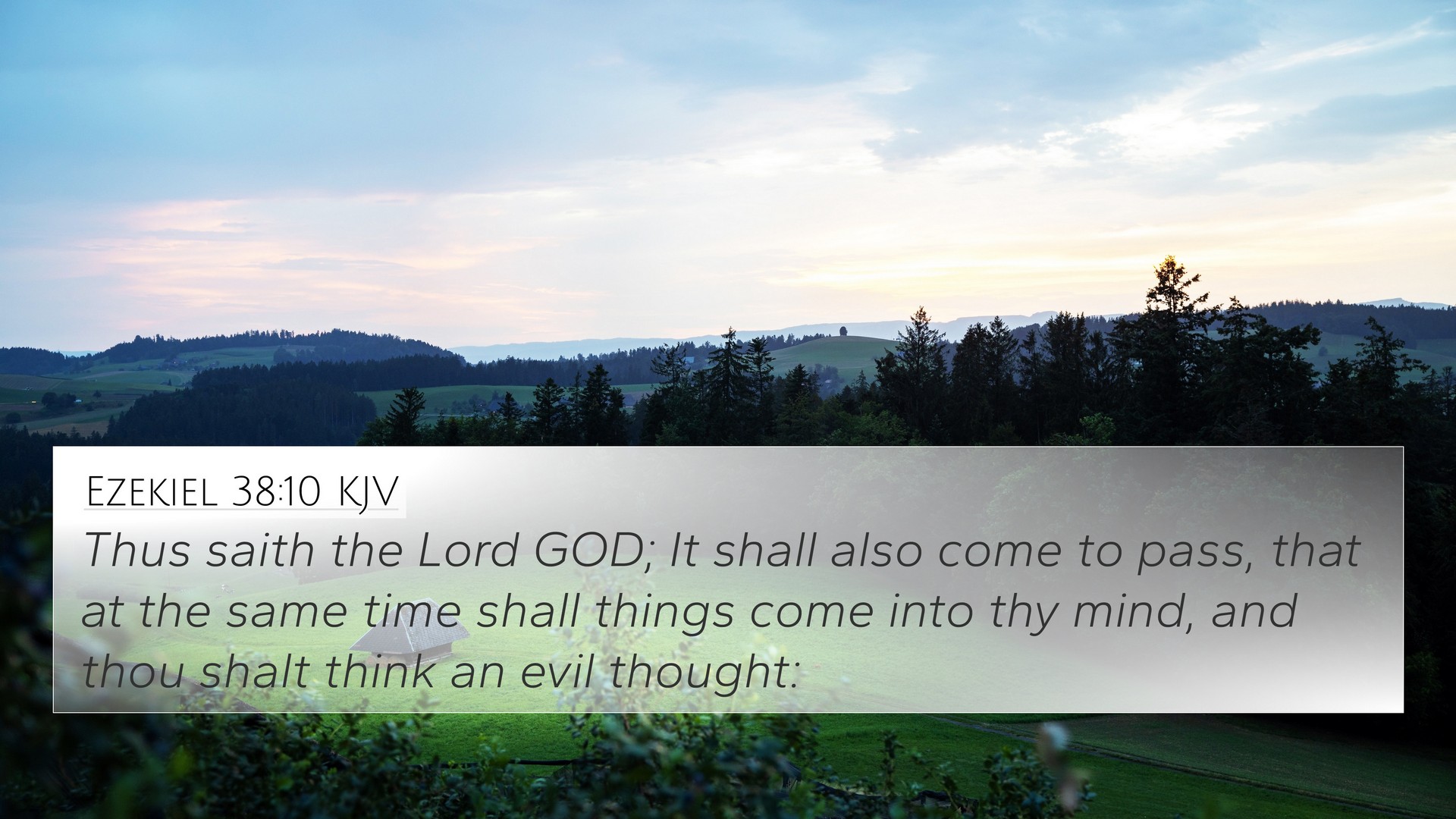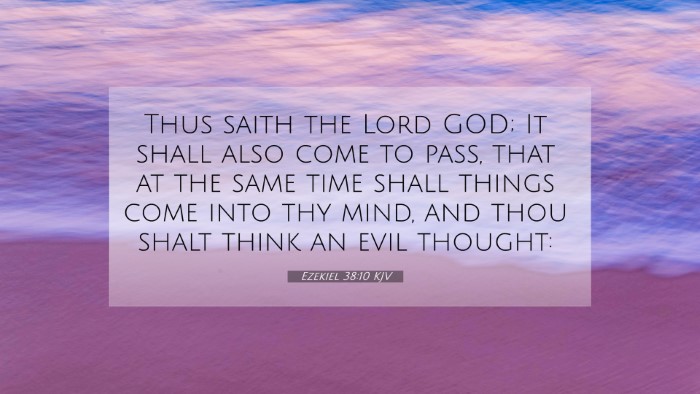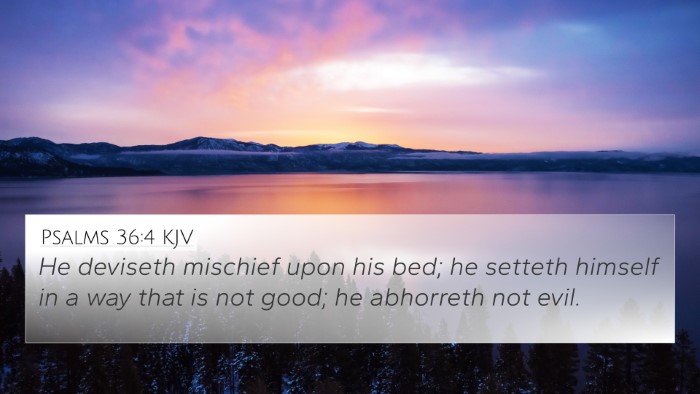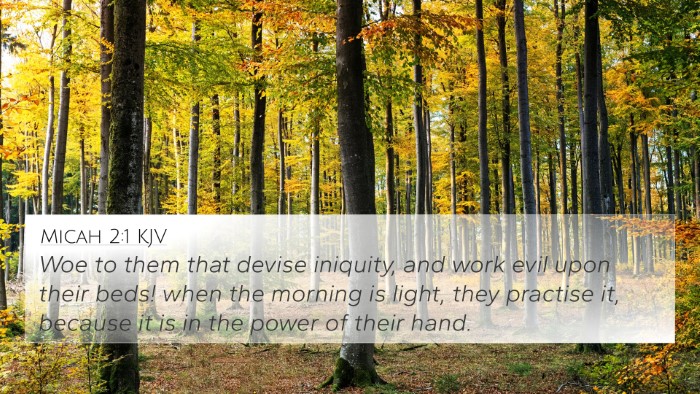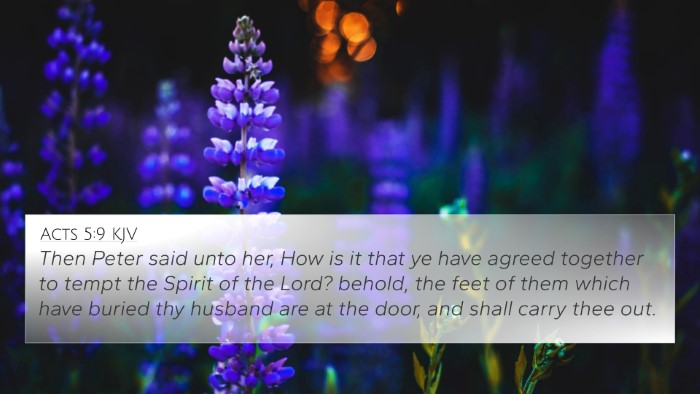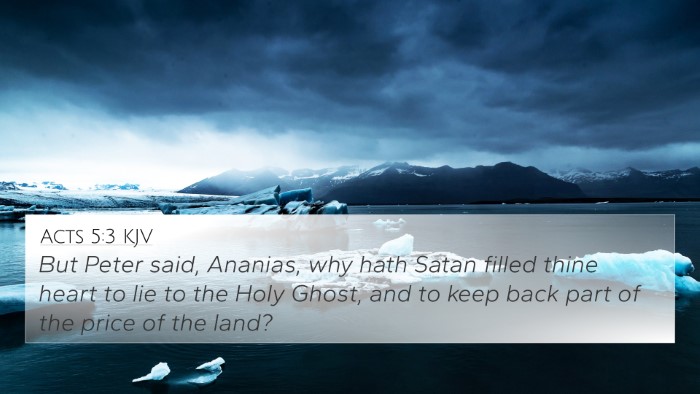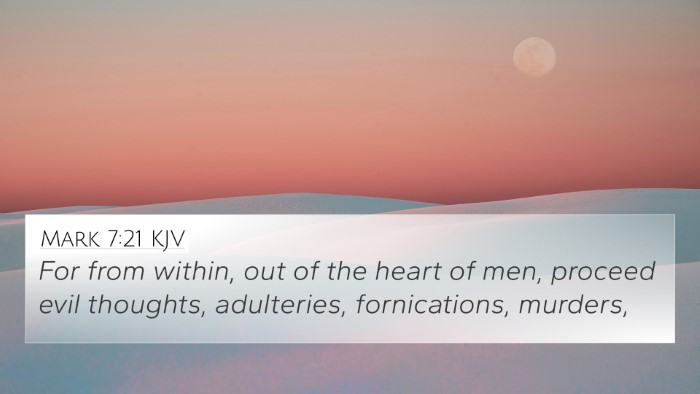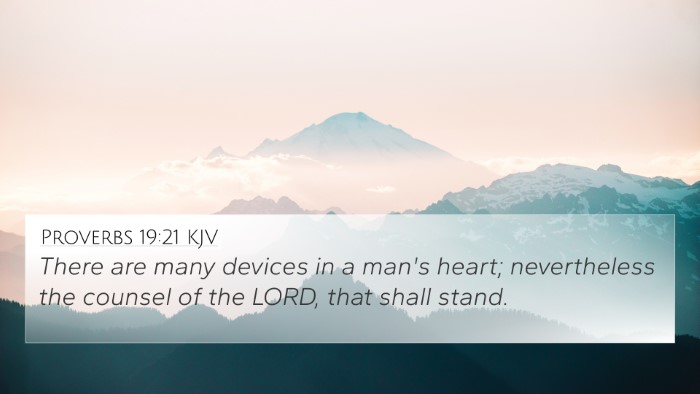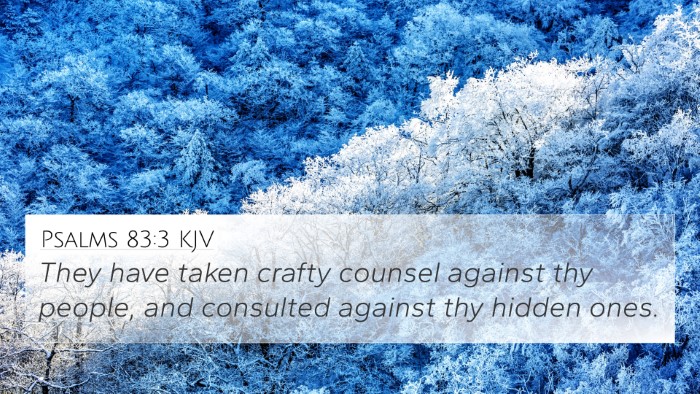Ezekiel 38:10 - Verse Meaning and Interpretation
Ezekiel 38:10 states, "Thus saith the Lord God; It shall also come to pass, that at the same time shall things come into thy mind, and thou shalt think an evil thought."
Summary of Insights
This verse marks a significant moment in the prophetic discourse of Ezekiel, elaborating on God's foreknowledge regarding the schemes of Gog, the leader of Magog, against Israel. It emphasizes the divine perspective on human thoughts and intentions.
Thematic Analysis
- Divine Foreknowledge: God's omniscience is highlighted as He knows the thoughts of Gog even before they manifest.
- The Nature of Evil Thoughts: The passage points to the emergence of malevolent ideas that spur conflict and war.
- Contextual Historical Relevance: The prophecy speaks to future events that encompass God's judgment on nations.
Commentary Insights
Matthew Henry's Commentary
Matthew Henry explains that this verse illustrates how God places thoughts into the minds of leaders to fulfill His divine purposes. The "evil thought" indicates a planned aggression against God's people, which ultimately serves as a reflection of both human depravity and divine sovereignty. Henry points out that such intentions will encounter God's intervention.
Albert Barnes' Notes
Albert Barnes emphasizes the specific timing highlighted in this prophecy, suggesting that a moment will arise when an overwhelming thought of conquest will seize Gog’s mind. He interprets this as a confirmation of God’s control over earthly matters, where human rulers are mere instruments in the unfolding of divine prophecy.
Adam Clarke's Commentary
Adam Clarke provides a historical lens to the verse, arguing that the "evil thought" signifies both the ambition and hubris prevalent in nations seeking to dominate Israel. He notes the prophetic significance of these thoughts as catalysts for God’s decisive actions against such nations.
Bible Verse Cross References
- Proverbs 21:1: "The king's heart is in the hand of the Lord, as the rivers of water: he turneth it whithersoever he will." This reflects God's sovereign control over rulers' thoughts.
- Isaiah 14:24: "The Lord of hosts hath sworn, saying, Surely as I have thought, so shall it come to pass..." indicating God's certainty in His plans compared to human intentions.
- Revelation 20:8: "And shall go out to deceive the nations which are in the four quarters of the earth, Gog and Magog..." relating directly to Ezekiel’s visions of Gog.
- Psalm 2:1-2: "Why do the heathen rage, and the people imagine a vain thing? The kings of the earth set themselves, and the rulers take counsel together..." showcasing the folly of earthly rulers against God's plan.
- Jeremiah 51:11: "Make bright the arrows; gather the shields: the Lord hath raised up the spirit of the kings of the Medes... to destroy" illustrating how divine will stirs the hearts of nations.
- Daniel 2:21: "And he changeth the times and the seasons: he removeth kings, and setteth up kings..." affirming God's role in sovereign transitions among leaders.
- Micah 2:1: "Woe to them that devise iniquity, and work evil upon their beds! When the morning is light, they practice it because it is in the power of their hand." This echoes the theme of wicked schemes leading to actions.
- James 4:1-2: "From whence come wars and fightings among you? Come they not hence, even of your lusts that war in your members?" correlating evil intentions with conflict.
- Acts 4:26: "The kings of the earth stood up, and the rulers were gathered together against the Lord, and against his Christ." connecting the opposition of earthly powers to God’s purpose.
- Romans 8:31: "What shall we then say to these things? If God be for us, who can be against us?" assuring believers that no evil intent can prevail against God.
Conclusion
The passage from Ezekiel 38:10 serves as a profound reminder of God’s sovereignty over the thoughts and plans of nations. In the chaotic interplay of human intentions, God's omniscience and omnipotence shine through, assuring believers of His ultimate authority and purpose.
Tools for Further Study
- Bible Concordance: Useful for tracking keywords and themes across scripture.
- Bible Cross-Reference Guide: A resource for finding related passages and exploring interconnections.
- Cross Reference Bible Study: Methods for engaging with multiple scriptures thematically or contextually.
- Bible Chain References: Techniques for linking verses that relate to a particular doctrine or narrative.
- Comprehensive Bible Cross-Reference Materials: Collections that encapsulate various themes and their scriptural ties for deeper understanding.
By studying Ezekiel 38:10 alongside cross-referencing other Biblical texts, one can develop a richer understanding of divine sovereignty, the nature of evil thoughts, and the overarching narrative of God's plans for humanity. Engaging with interconnected scriptures unveils the depth of God's Word and its relevance throughout different epochs of history.
